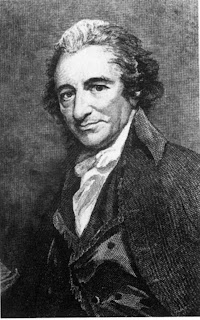 It is that time of year again, when the marketing of the Christ child reaches obscenely commercial depths in the annual materialistic Christmas orgy, and when controversies over nativity scenes in public places are ritually reenacted to pump up Christians’ persecution complex and to make the foxy Bill O’Falafel pump up his television ratings.
It is that time of year again, when the marketing of the Christ child reaches obscenely commercial depths in the annual materialistic Christmas orgy, and when controversies over nativity scenes in public places are ritually reenacted to pump up Christians’ persecution complex and to make the foxy Bill O’Falafel pump up his television ratings.We have had a local example of the nativity controversy. As reported in the Portsmouth Daily Times (PDT) which has recently fired reporter Jeff Barron for telling some inconvenient truths about the over-privileged of Portsmouth, the manager of the Shawnee State Lodge, Bill Griffin, decided that there would be no nativity display this year. His explanation was that non-Christians had requested permission to put on displays to honor their religions, claiming they had as much right as Christians to do so. The PDT reported (6 Dec. 2007), “Griffin said he received phone calls from ‘pagans’ wishing to erect their own displays, and opted instead to remove the [nativity] display entirely.” Preacher Gary Chaffins of the Voice of Truth Ministry launched a public protest. Chaffins claimed that “He (Griffin) chose against Christianity.”
The controversy was resolved, sort of, when Gov. Strickland ordered that the nativity display be returned to Shawnee State Lodge and other state parks where they had been removed. As reported in the PDT (7 Dec. 2007), a spokesman for the Governor said the state is not obligated to allow other religions to put up displays. “He thinks we need to approach this with as much common sense as we can,” the Governor’s spokesman said. Merriam-Webster defines common sense as “sound and prudent judgment based on a simple perception of the situation or facts.” Strickland is both an ordained Christian minister and governor, so it is possible his decision to allow the nativity display and disallow “pagan,” or non-Christian displays, was based on both religious and political considerations. But whether religion or politics were involved, I do not think common sense, as the dictionary defines it, had much to do with his decision. Nor did truth, unless you accept “truth” as defined by Gary Chaffins of the Voice of Truth Ministry. The “truth” Chaffins promotes is rooted in an ignorance so deep and a prejudice so wide that it dwarfs the Atlantic and the Pacific combined. How can Chaffins or anyone else adrift in that ocean be expected to understand why the original decision of the general manager of the Shawnee to have no religious displays at the Shawnee State Lodge made sense – made not just common sense but historical and philosophical sense.
The revolutionary Founding Fathers did not intend that United States of America would be a Christian nation. They were not atheists, but they were not orthodox Christians either. Most of them, including Washington and Jefferson, were Deists. To return to Merriam-Webster again, Deism is defined as “a movement or system of thought advocating natural religion, emphasizing morality, and in the 18th century denying the interference of the Creator with the laws of the universe.” Some Deists were more revolutionary than others. Thomas Paine (shown above), one of the most radical and influential, wrote works in support of the American Revolution and Deism. His book in support of the Revolution and in favor of the separation of church and state was titled Common Sense. He closed Common Sense by saying to a religious group, “Sincerely wishing, that as men and Christians, ye may always fully and uninterruptedly enjoy every civil and religious right; and be, in your turn, the means of securing it to others; but that the example which ye have unwisely set, of mingling religion with politics, may be disavowed and reprobated by every inhabitant of America.” The setting up of a Christian display in a public place and the disallowing other displays is mingling religion with politics, which Paine had warned against. It is allowing one religion to claim that it speaks “the truth,” a truth which the state must allow it to promote in public displays.
Many Americans do not believe Jesus is the son of God or that he is their savior. There are many Americans who do not believe in Christianity. There are even Americans, a minority but more than you might suspect, who do not believe in God. I do not believe in ghosts, holy or unholy. I believe those who believe in ghosts have the right to worship ghosts within their houses of worship. They also have the right to put up religious displays in those tax exempt houses of worship. But I do not believe they have the right to put up religious displays on public property. That is a violation of the separation clause of the U.S. Constitution. There is no mention of god in our Constitution, and that was not an oversight. There is no mention of Christ in the Declaration of Independence, but there is, in the famous opening lines, mention of “the laws of nature and of nature’s God.” That is not an oversight either. To insist that the US was founded as a Christian nation is untrue. This nation was founded by Deists, who believed not in the Christian God but in “the laws of nature and of nature’s God.” Only a Ministry of Lies, not a Ministry of Truth, would claim otherwise.